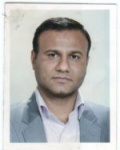| Authors | Ali Najafi Ivaki; Fatemeh Mahmoudi; Roholla Sayadi Nejad |
|---|---|
| Journal | Horizon of IslamicCivilization |
| Paper Type | Full Paper |
| Published At | ۲۰۲۲ |
| Journal Grade | ISI |
| Journal Type | Typographic |
| Journal Country | Iran, Islamic Republic Of |
Abstract
Evaluating the different levels of ancient religious texts based on new theories and patterns causes the dynamism of those texts and their deeper understanding and leads to new attention and discovery of new beauties. Critical discourse analysis as a new approach plays a significant role in discovering the ideology of the discourse owner. Theon Van Dijk, who is one of the prominent theorists of critical discourse analysis, presents his ideological square theory for discourse analysis; His ideological square has four sides, which emphasizes on highlighting the positive characteristics of oneself or the insider, the negative characteristics of the other or the other, and downplaying the negative characteristics of the self or the insider, the positive characteristics of the other or the other. Considering the high potential of this theory, the present research intends to examine the 25th sermon of Nahj al-Balagha with a qualitative approach and the method of critical discourse analysis based on Van Dyck's ideological square. Analyzing the critical discourse of the 25th sermon of Nahj al-Balaghah in the light of the ideological square of Van Dyck invites us to believe that the author of the discourse guided the people and portrayed the subordinate group and the anti-group, and sought to polarize the gray group, who are the Kufans who have been involved in misguidance to a large extent and because of their negligence and negligence, they almost They fully join the opposite group while they are sleepy. Based on this mentality, the author of the speech sought to speak by employing various strategies about the positive points of the affiliated group and the negative points of the opposing group, and called people in general and the Kufans in particular to the straight path and the people of truth. In the studied discourse, although many reprimands were directed at the Kufans and their deeds, the author of the discourse did not despair of guiding them and endeavored to educate them. Accordingly, the Kufans are considered a middle group (the gray bar) in the case. Since they did not join the people of falsehood categorically and did not prevail in their entirety, the author of the text put them in a state of suspension and took great care in defining their status and replacing them with others.
And that the author of the speech focused a special focus on proving, highlighting and amplifying the negative points of the opposing group, and that the ideological lines are explicit and clear in three sides of the ideological square. As for the other side related to underestimating the weakness of the self or me, it is hidden and not explicit. We can deduce that since the author of the speech was a political and religious leader, this made him not see a weakness in him until he declared it or tried to conceal it. The reason is that the place is not a place of self-praise and shame, but rather a place of compulsion. Because the Islamic countries came out of his authority except Kufa. From another point of view, the imam does not aim to favor the affiliated group over the opposing group, but rather he intends to educate the inattentive consciences of the Kufans and remove the curtain from the bad behavior of the Umayyads.
And that the author of the speech does not intend to weaken the will of the Kufans and their decision by highlighting their negative points, but rather aims to strengthen their will and achieve his goals by influencing and changing their ideas, emotions, and desires. In the other side, although the speaker was able to benefit from propaganda and negative arts such as anesthesia, deception and spreading rumors, he did not do that, but rather employed other arts such as incitement, balance, awareness and clarification. In the end, the ideology of the Imam (PBUH) in this sermon is to spread unity, accept responsibility, stir people to be loyal to their homeland, and avoid treason.
